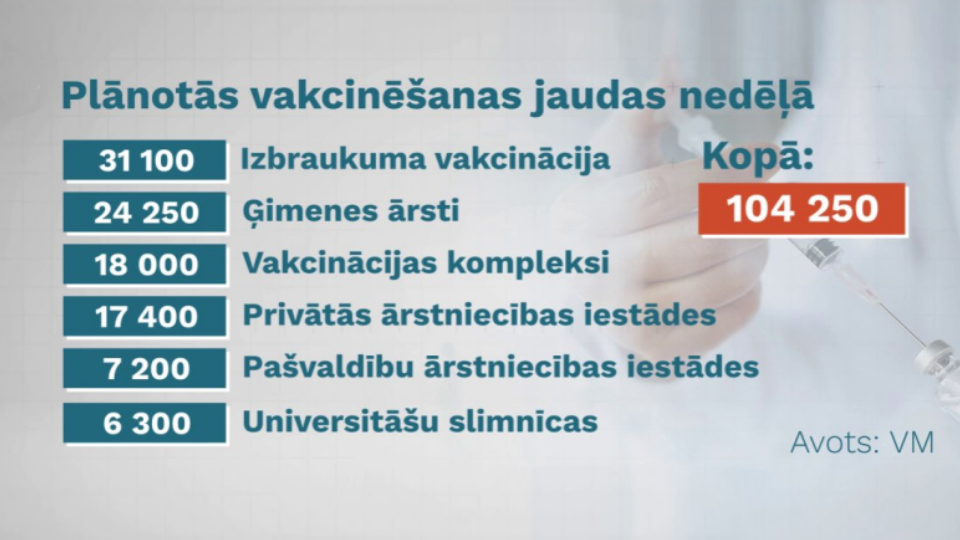"The vaccination plan that we approved today in the government is detailed, digital and flexible. Uncertainty is the only certainty of this time, now we will be willing to act in different situations," said Daniels Pavļuts, Minister for Health.
The plan includes:
- establishing common lists, contacts of those who have expressed an interest in vaccinating, priority groups, and vaccination sites;
- single schedule and queue, which will help to plan the load and working hours of vaccination locations, as well as the management of records;
- centralized supply of vaccines and stock management;
- centralized communication with the population.
Given that vaccination is a voluntary choice, persons will be able to apply in a number of ways, for example, an electronic site that will be opened in the near future, as well as through GPs and collectively through workplaces.
Priority groups to be vaccinated will not change. In February, the vaccination of health workers would be continued, but in addition the vaccination of social services workers and their customers as well as some seniors would also be launched. Vaccination of the population of other priority groups would be carried out from April, while vaccination of all citizens who have not previously been included in one of the priority groups could be started as of June.
The vaccination plan provides that 100 000-150 000 vaccinations per week are provided. The goal is to vaccinate a minimum of 70% of the adult population by the end of the summer of 2021. This, however, is in contrast with a survey conducted earlier, which shows that only 50% would be ready to vaccinate and 38% are certain they will refuse.
The Minister for Health said at a press conference that a large amount of vaccines is expected in April, as the information on deliveries is constantly changing. According to Pavļuts, "real delivery peak is expected in May, June".




























